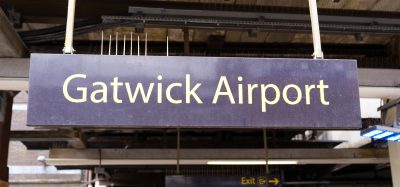UK feasibility project for use of electric air taxis secures government research grant
- Like
- Digg
- Del
- Tumblr
- VKontakte
- Buffer
- Love This
- Odnoklassniki
- Meneame
- Blogger
- Amazon
- Yahoo Mail
- Gmail
- AOL
- Newsvine
- HackerNews
- Evernote
- MySpace
- Mail.ru
- Viadeo
- Line
- Comments
- Yummly
- SMS
- Viber
- Telegram
- Subscribe
- Skype
- Facebook Messenger
- Kakao
- LiveJournal
- Yammer
- Edgar
- Fintel
- Mix
- Instapaper
- Copy Link
Posted: 27 January 2021 | International Airport Review | No comments yet
The project has secured partial funding through the UK government’s Future Flight Challenge to look at the feasibility of an air taxi service in the UK’s South West region.


A consortium – led by Atkins, a member of the SNC-Lavalin Group, and involving Vertical Aerospace and the West of England Combined Authority – has secured an industrial research grant from the UK government to look at the feasibility of an air taxi service in the South West region of the UK before conducting a demonstration in a live environment.
The £2.5 million project has secured partial funding through the government’s Future Flight Challenge, which was created to find innovative methods of achieving greener flight, finding new ways to travel, increasing mobility, improving connectivity and reducing congestion.
The project is expected to take 18 months, and will comprise: An assessment of the demand for air taxi services in the South West; development of use cases for the technology; and an evaluation of the integration and impact on the wider transportation network, including the region’s airports, as well as the benefits to cities and residents.
It will establish viable markets and businesses cases for these services and seek to understand public perceptions and attitudes towards eVTOL (electric vertical take-off and landing) aircraft. These activities aim to culminate in a series of full-system demonstrations in live airspace across the region
James Richmond, Advanced Air Mobility Lead at Atkins, said: “As we look to the future of travel, it’s now more important than ever that we begin exploring more sustainable methods of transport within our increasingly populated cities. Bringing together the experience and expertise from across the consortium, we’re excited to begin developing a fully integrated system concept, using the latest digital innovations. This an important and tangible step towards making Advanced Air Mobility a reality, and by demonstrating that we can provide a case for air taxis, we could begin trialling these services as early as 2023.”
Atkins, in addition to managing the project, will provide whole-system enterprise architecture, develop safety cases and create processes for secure passenger identification management.
Vertical Aerospace, a Bristol-based electric aircraft manufacturer, will explore vehicle integration, using their eVTOL air taxi. Skyports, an infrastructure provider for the emerging Advanced Air Mobility (AAM) industry, will be responsible for the design, development, operation and airport integration of the physical infrastructure to enable safe and efficient air taxi services.
Head of Digital Systems at Vertical Aerospace, Vic Terry, said: “At Vertical, our ultimate aim is to make air travel green and accessible to everyone. This is a great opportunity to bring the consortiums’ products and services together, showcasing that air taxis are not reserved for science fiction, but achievable, to benefit both our cities and economy in the UK and around the world.”
Other consortium members include:
- Altitude Angel and NATS, who will be investigating advanced air traffic management (ATM) solutions and the integration of conventional air traffic control (ATC)
- Cranfield University, which will lead on the communication systems required to enable flight, particularly within an urban environment
- London-based IT company, Neuron, which will focus on interconnectivity to enable safe and efficient passenger movement
- One of the UK government’s innovation agencies, Connected Places Catapult (CPC), will lead the research into public perception of air taxis, the ways this method of travel would be used and the expected demand on AAM as a service
- The West of England Combined Authority (WECA) offers the backing of a regional authority and will help to ensure that plans align with the Joint Local Transport Plan, and foster cross-sector collaboration between the project and the likes of the Future Transport Zone and 5G developments.
Tim Bowles, the Mayor of the West of England, said: “I want to bring the jobs of the future to the West of England and get our region moving. This air taxi trial brings both those ambitions together and is a significant step in cementing the UK and the West of England as leaders in air taxis. Doing things differently is in our region’s DNA, and I’m proud that we are once again leading the way on yet another exciting new technology, building on our region’s global reputation as a worldwide aerospace hub and supporting our low carbon objectives for the region.”
In addition to the grant partners, Bristol Airport (BRS) will be acting as the principal support airport. Subsequent input will be provided by other airports in the region to ensure the concept’s transferability across different infrastructure.
The Sustainability and Corporate Affairs Director at Bristol Airport, Simon Earles, said: “We have set the airport an ambitious target to be carbon net zero by 2050. Innovative new approaches to travel, like the air taxi service, are critical to making this a reality and also support the wider decarbonisation agenda in the South West, and we are proud to act as a test bed for this exciting project.”
While the feasibility studies and subsequent trials will be based in the South West, the project will also consider scalability and application in other cities.
Related topics
Air traffic control/management (ATC/ATM), Aircraft, Emissions, Funding and finance, New technologies, Passenger experience and seamless travel, Sustainability, Sustainable development
Related airports
Related organisations
Altitude Angel, Atkins, AtkinsRéalis, Connected Places Catapult (CPC), Cranfield University, NATS, Neuron, Skyports, SNC-Lavalin, UK Government, Vertical Aerospace, West of England Combined Authority (WECA)


















